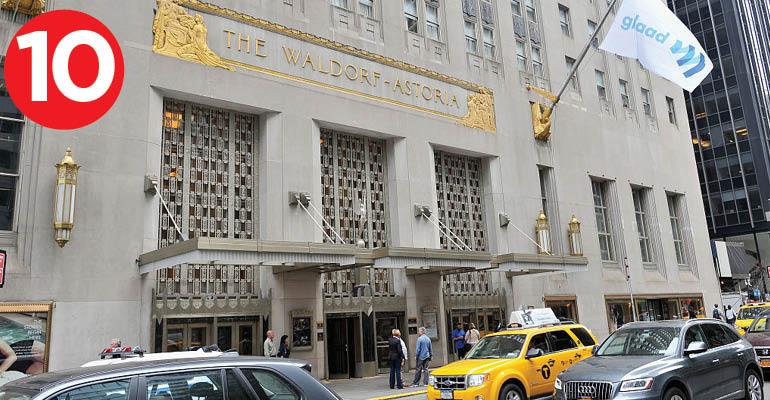- Fed Research Director David Wilcox to Retire at Year’s End “The Federal Reserve Board said its head economist will retire at the end of 2018, in what would be the most significant change in a senior staff position since Chairman Jerome Powell took office in February. David Wilcox plans to step down after a seven-year stint as director of research and statistics at the Fed board and 30 years of total service at the central bank, the board said in a statement. A search for his successor will begin later this year.” (Wall Street Journal, subscription required)
- Ten Economic Experts Debate When the U.S. May Hit the Next Recession “The U.S. economy is growing at a fast clip, and the bull market is entering its ninth year. But some economists are starting worry over rising interest rates and a negative signal from the bond market called a ‘flattening yield curve.’ ‘The yield curve—with one exception in 1966—has basically predicted every recession,’ Natixis Chief Economist Joseph LaVorgna told CNBC in July. ‘If the curve inverts let's say in October, history would say the earliest you'd have a recession would be next summer, next August. And the latest would be August of 2020.’” (CNBC)
- Swanky Waldorf Astoria Reopening Is Delayed a Year “After months of mystery behind the shuttered Waldorf Astoria’s limestone-and-brick facade, there’s finally word of tangible progress at the Park Avenue landmark that closed in February 2017 to prepare for a new life as mostly condo apartments. Mega-contractor AECOM Tishman has signed a new deal with owner Anbang Insurance Group to start building a planned 350 condo apartments and 350 new hotel rooms and suites.” (New York Post)
- As Property Investors Turn Lenders, Some Warn About Excessive Building “Many real-estate investors who have bought commercial property in recent years are now putting their money into property loans instead of outright ownership, a wager that the long bull market may be nearing an end. Pension funds, government funds and wealthy individuals are lending or investing in funds that offer construction loans, bridge loans and other kinds of loans with higher rates of default. These types of loans tend to be more speculative than those backed by mostly leased properties, but they can bring higher returns.” (Wall Street Journal, subscription required)
- How Tech Solves the Real Estate Investor’s Two Biggest Problems “I started investing in real estate in the early aughts, and clearly a lot has changed since then. In my infancy as an investor, I was frustrated by the lack of tech available for networking and finding investment-quality properties. On the heels of that was the need to connect so I could secure capital for investments. In my desperation, I tried to use MySpace to find the resources needed to launch my investment career. It’s not hard to imagine how ineffective that little experiment worked out.” (Forbes)
- CBRE Announced Reorganization, Executive Promotions “CBRE Group Inc. will be undergoing a transformative reorganization at the beginning of 2019, which will see the promotion of many senior executives. ‘The new structure establishes clearer lines of authority, provides greater transparency and accountability and drives excellence and efficiency throughout the organization,’ Bob Sulentic, CBRE’s president & CEO, told Commercial Property Executive. ‘All of this will help us to advance our strategy and move us toward our aspiration to be a truly world-class company.’” (Commercial Property Executive)
- Walmart: Maybe It’s Not Eating Dollar Stores Alive “When the massive retailer—and Barron’s Next 50 stock—turned in a big quarter, investors applauded and some observers wondered whether that meant market share was being ripped from dollar stores or grocers. Guggenheim analysts, writing Sunday, say that might not be the case. Walmart’s quarter ‘begs the question: rising tide or zero sum for its retail peers? We would argue rising tide, which bodes well for the remainder of the second-quarter earnings season,’ Guggenheim wrote.” (Barron’s Next)
- How Lifestyle Centers Have Evolved with the Times “In the 1990s, The Limited conducted a study that produced shocking results: Fully 43% of Americans wouldn’t go to the mall! This was a direct and perhaps inevitable result of a philosophy that was so unconcerned with the quality of the shopping experience that malls were often designed with escalators located solely at the ends of the building — in an attempt to ‘force’ shoppers to pass more storefronts.” (Chain Store Age)
- Tinley Park to Vote on Housing Lawsuit Settlements Totaling More Than $400K “Tinley Park trustees are scheduled to vote at Tuesday’s village board meeting on settlements totaling more than $400,000 that will put an end to pending lawsuits stemming from plans, since abandoned, to build apartments that would have targeted low-income renters. The village will pay $50,000 to resolve a Justice Department lawsuit filed in November 2016, alleging village officials violated the federal Fair Housing Act when they refused to approve plans for The Reserve.” (Miami Herald)
- Rebound in Consumer Spending Propels Job, Trade and Logistics Growth in U.S. “According to Transwestern's newly released national industrial report for the second quarter of 2018, 37 of 47 U.S. markets posted positive absorption for the quarter, and 43 of 47 posted positive absorption for the previous 12-month period. Brisk absorption in the majority of primary and secondary markets has kept the national industrial vacancy rate low, with 30 markets recording vacancy at or below the U.S average of 5.0 percent.” (World Property Journal)
0 comments
Hide comments

